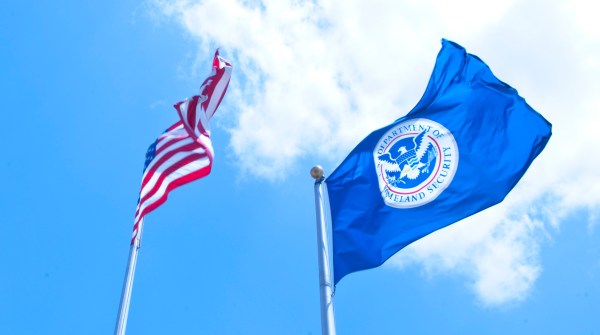DHS advances AI project improving use of contractor past performance data

The Department of Homeland Security has entered the second phase of its project leveraging artificial intelligence to help agencies better use data on contractor past performance.
DHS‘s Procurement Innovation Lab recruited 10 agencies to contribute data and funds to further evaluate seven AI solutions improving contracting officials’ ability to find Contractor Performance Assessment Reporting System (CPARS) data quickly.
The $50,000 phase 2 awards will allow a subset of the nine original companies that made AI prototypes to refine their solutions in areas like security accreditation for software-as-a-service (SaaS).
“This is not about using artificial intelligence to replace human intelligence but recognizing the challenge that some can face if it takes a long time to go into the system and figure out what records are relevant,” said Matthew Blum, associate administrator of the Office of Federal Procurement Policy, during an ACT-IAC event Tuesday. “So if we can use AI to shorten that timeframe and get this information much more rapidly, it saves the workforce a tremendous amount of time, but you still get all the value.”
Part of phase 2 will involve allowing agencies to weight past performance criteria depending on their needs in areas, like cost control or business relations, before the AI gathers such information.
One of the companies chosen to advance is CORMAC, which created a federally accredited SaaS solution called the CORMAC Envisioning and Prediction Enhancing System (CREPES). The tool uses machine learning and natural language processing to rapidly determine how relevant past projects were to current requirements when pulling information.
CORMAC has the opportunity to turn CREPES into a governmentwide solution, with phase three of DHS’s project consisting of a full pilot culminating in a multiple-award, governmentwide acquisition contract. DHS envisions a commercial, multi-vendor marketplace where the AI services are sold.
Because the AI solutions are only as good as the agency data provided, some have suggested requiring contractors to provide better information.
“Industry is very excited to hear about the AI pilots and their ability to pull relevant CPARS information more quickly from the existing data,” said Mike Smith, executive vice president of GovConRx. “But there’s a thought that if agencies would utilize the assistance of the contractor to provide relevant data, then it would be easier to put relevant data into the system — garbage in, garbage out.”
Contracting officials might not initially accept the idea of contractor past performance information coming to them via an AI filter, so training to familiarize them with the tools may be needed, said Melissa Starinsky, director of the Office of Acquisition & Grants Management within the Centers for Medicare & Medicaid Services.
“I think that’s a change we’ll have to get the workforce ready for,” Starinsky said.
OFPP Administrator Michael Wooten included past performance in the President’s Management Agenda Cross-Agency Priority Goal of frictionless acquisition.
The administration wants to use technology and data more effectively in acquisition, and CPARS is now a key part of that, Blum said.
“We want to make sure that our system is as responsive as possible,” Blum said.




